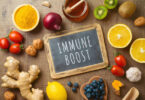A strong heart is the cornerstone of a long, healthy life. With heart disease remaining the leading cause of death globally, paying attention to what you put on your plate is more important than ever. The good news? You can nourish your heart naturally by incorporating certain nutrient-rich foods into your daily diet. In this ultimate guide, we will explore 20 powerful foods that support heart health, reduce inflammation, regulate blood pressure, and improve cholesterol levels. Stick around—your heart will thank you.
Why Diet Matters for Heart Health
Your heart is a muscle that requires the right fuel to function effectively. A diet high in processed foods, trans fats, and sugar can cause damage over time, leading to plaque buildup, high blood pressure, and poor circulation. On the other hand, a heart-healthy diet loaded with whole foods, fiber, antioxidants, and healthy fats can significantly reduce your risk of cardiovascular disease.
Leafy Green Vegetables
Spinach, kale, arugula, and swiss chard are packed with vitamins, minerals, and antioxidants. They are particularly high in vitamin K, which helps protect arteries and promote proper blood clotting. They are also rich in dietary nitrates, which help reduce blood pressure and improve arterial function.
Berries
Blueberries, strawberries, raspberries, and blackberries are antioxidant powerhouses. Rich in anthocyanins, berries help reduce oxidative stress and inflammation—two major contributors to heart disease.
Avocados
Avocados are an excellent source of heart-healthy monounsaturated fats, which can help lower bad LDL cholesterol levels while increasing good HDL cholesterol. They also provide potassium, a vital mineral for heart function.
Fatty Fish
Salmon, mackerel, sardines, and tuna are loaded with omega-3 fatty acids, known for their powerful anti-inflammatory effects. Consuming fatty fish regularly is linked to a lower risk of arrhythmias, triglyceride levels, and plaque formation.
Nuts and Seeds
Almonds, walnuts, flaxseeds, and chia seeds are full of healthy fats, fiber, and plant-based omega-3s. These nutrients support cholesterol balance, reduce inflammation, and keep your arteries clear.
Whole Grains
Oats, quinoa, brown rice, and barley are rich in fiber, especially beta-glucan, which helps lower bad cholesterol. Whole grains also help regulate blood sugar levels and reduce heart disease risk.
Legumes
Beans, lentils, and chickpeas are high in protein, fiber, and minerals like magnesium and potassium. Including legumes in your diet helps lower cholesterol and supports steady blood pressure levels.
Olive Oil
Extra virgin olive oil is a staple in the Mediterranean diet, one of the world’s healthiest eating patterns. It contains polyphenols and monounsaturated fats that reduce inflammation and protect your arteries.
Dark Chocolate
When consumed in moderation, dark chocolate (with at least 70% cocoa) can improve heart health. It’s rich in flavonoids that enhance blood flow, lower blood pressure, and reduce oxidative stress.
Tomatoes
Tomatoes are rich in lycopene, an antioxidant linked to lower levels of LDL cholesterol and reduced risk of heart attacks. Cooking tomatoes increases the availability of lycopene.
Garlic
Garlic has been used for centuries for its medicinal properties. It contains allicin, a compound that can help lower blood pressure and cholesterol levels and improve overall cardiovascular health.
Green Tea
Green tea is loaded with catechins and antioxidants that boost heart health by lowering cholesterol, reducing blood pressure, and improving blood vessel function.
Citrus Fruits
Oranges, lemons, limes, and grapefruits are high in vitamin C and flavonoids, which fight inflammation and oxidative stress. They also help lower blood pressure and cholesterol levels.
Broccoli
This cruciferous vegetable contains sulforaphane, a powerful antioxidant that helps combat inflammation. Broccoli is also rich in fiber, which supports healthy cholesterol levels.
Beets
Beets are a great source of dietary nitrates that convert into nitric oxide, a molecule that dilates blood vessels and improves blood flow. Beets may also help reduce blood pressure.
Pomegranates
Packed with antioxidants like punicalagins, pomegranates are great for your heart. They can help lower blood pressure, improve cholesterol, and clear arterial plaque.
Apples
“An apple a day keeps the doctor away” rings especially true for your heart. Apples are rich in fiber and polyphenols, which help reduce blood pressure and LDL cholesterol.
Sweet Potatoes
Sweet potatoes are a rich source of potassium, fiber, and antioxidants. They help reduce blood pressure, stabilize blood sugar, and provide steady energy levels.
Turmeric
The active ingredient in turmeric, curcumin, has anti-inflammatory and antioxidant properties. Regular consumption helps reduce inflammation that can damage blood vessels.
Yogurt
Plain, unsweetened yogurt provides probiotics that support gut health—an often-overlooked factor in heart health. It’s also rich in calcium and potassium, essential for blood pressure regulation.
Dark Leafy Herbs
Herbs like parsley, cilantro, and basil not only add flavor but are loaded with antioxidants, vitamins, and minerals that support cardiovascular function and help detox the body.
How to Incorporate These Foods into Your Daily Diet
- Add leafy greens and berries to your morning smoothie.
- Top oatmeal or yogurt with nuts and fruit.
- Use olive oil in dressings and for sautéing.
- Swap red meat with fatty fish a few times a week.
- Make hearty stews with beans, lentils, and tomatoes.
- Sip green tea throughout the day.
- Choose dark chocolate as a healthy dessert.






